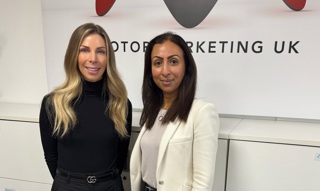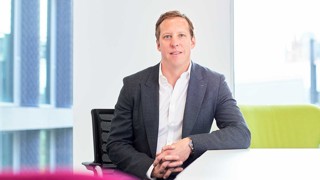Deacon believes social media is just another aspect of a dealer’s marketing mix and expands the way a customer can choose to get in contact.
A lot of dealers are concerned that getting involved with social media opens them up to negative feedback on a public forum.
Deacon said: “If there’s a disgruntled customer we react very quickly and they tend to go from being unhappy to an advocate of the business, all because we’ve taken notice of them and resolved the issue.”
Ridgeway’s social media strategy is being explored every day and is a “constant evolution”.
Deacon said: “There’s the stigma about social media that it’s just for kids, but that’s through a lack of understanding and we’ve had to gain that understanding through education.
"Everyone in the management team understands what we’re trying to achieve.”
Particularly active figures in the automotive retail arena on Twitter include Daksh Gupta, Marshall Motor Group chief executive, and Robert Forrester, Vertu Motors chief executive, who both manage their own accounts to interact with customers and post highlights about their businesses.
Gupta said: “All our management have access to Twitter and Facebook to help market their businesses.”
Lifestyle Europe encourages its staff to keep in touch with customers through Twitter and doesn’t have strict guidelines as to how they deal with customers.
Lifestyle told AM on Twitter: “We monitor our peripheral teams, but generally we allow them to take their own route to create closer/localised relationships.”
Benfield Motor Group is another business which has invested in social media to form part of its digital strategy.
Nigel McMinn, Benfield managing director, said: “We recognised 18 months ago that we needed to be into it and it wasn’t good enough to be aware of it, we needed to be active.
“I don’t want to be one of those companies that looks at social media in five years’ time and realise that we’ve been left behind.”
McMinn was already testing the waters personally with social media and overcame his own objections about social media before introducing the idea to his managers.
He told AM: “I coerced a lot of managers to get on Facebook and Twitter and use it themselves.
“There was scepticism at first with a lot of managers saying it would open us up to a bigger platform for customers to complain.
“As long as you’re seen to deal with the problem, it can be a big benefit. Customers have actually leapt to our defence when a customer has complained in some instances.”
After a month of using it themselves, the managers in the group had a much more positive attitude.
Benfield also has franchise specific Twitter accounts which are managed by volunteers that have shown willing to own the medium.
Benfield has sales executives and managers that take responsibility for posting content and replying to customers.
McMinn went to a specialist digital agency to help guide the business with how it should approach its social media marketing.
He said: “We needed a coach once we had all bought into it.
“We’re working with the right people to help give us guidance where we need it and they’re working to a six-month programme which has a committed cost and they’ve been tasked with helping us to increase our follower count on Twitter and Facebook.”
McMinn said social media accounts for a relatively small amount of Benfield’s marketing budget.
Using Google Analytics, Benfield tracks all mentions made of the company’s name with reports generated every day.
He said: “We always make sure we address complaints and 90% of the time they react well to us getting in touch and sorting the problem.
“The most important aspect of social media for our business is the two way conversation, the fact you can have a back and forth with the customer in that environment.
“We want to be able to ask them questions and get their feedback.”





















chatmeter@gmail.com - 14/10/2011 03:51
This is a great story about a company taking control over its online reputation. Doing this is becoming more important for all sizes of companies, because of the damage a negative review can have.